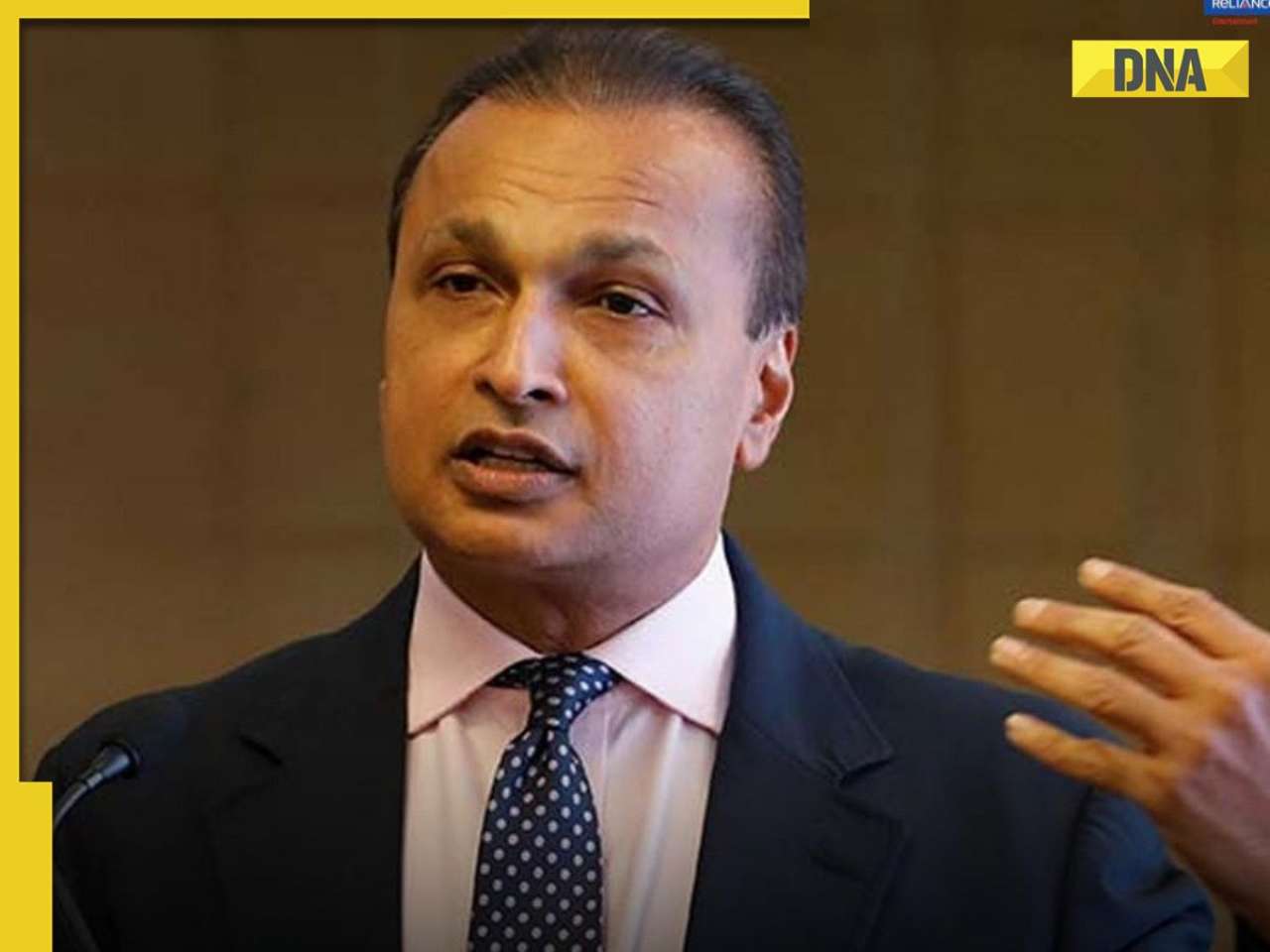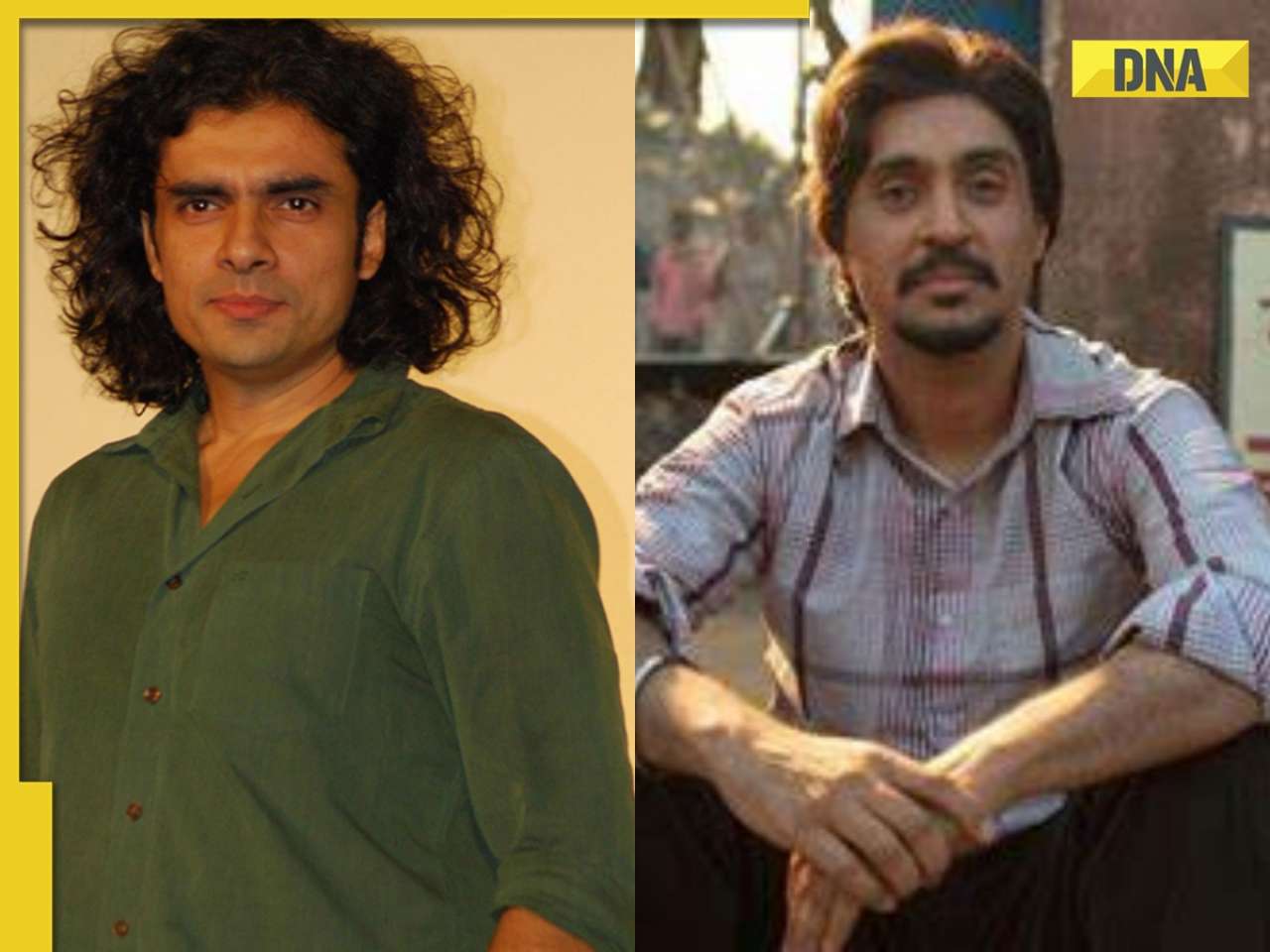More than three-and-a-half years after Iraqis cheered the fall of Saddam Hussein's statue, the ousted dictator's end will probably draw a little closer Sunday with the verdict in his first trial.
BAGHDAD: More than three-and-a-half years after Iraqis cheered the fall of Saddam Hussein's statue, the ousted dictator's end will probably draw a little closer Sunday with the verdict in his first trial.
"It won't be long," Prime Minister Nuri al-Maliki promised Iraq last month, displaying a better grasp of the political significance of the drama than the niceties of due process or the independence of the judiciary.
"An execution order on this criminal despot and his criminal aides will be passed soon," he said.
"His execution will remove the playing card on which those who want to be back in power are betting."
Maliki might have jumped the gun, but few would indeed bet on anything other than a death sentence when Saddam and his seven co-defendants file back into the cramped courtroom of the Iraqi High Tribunal in Baghdad.
In the first of several probes into the brutal excesses of Saddam's 24-year reign, the former strongman stands accused of ordering the destruction of the small Shiite community of Dujail, 60 kilometres north of Baghdad.
Saddam survived an assassination by members of Maliki's Dawa party in Dujail in 1982, and responded with his customary vigour.
A kangaroo court was set up, the village's orchards destroyed and 148 civilians executed.
Twenty-four years and three wars later, Maliki and his supporters have their chance to finish the job and kill Saddam once and for all.
The once untouchable tyrant has been imprisoned at a US military base and forced to listen to accusers list the crimes carried out by his regime.
An Iraq once mesmerised by his daily court appearances has turned off its televisions, with shell-shocked citizens more concerned by the daily struggle to survive in a country that has become a sectarian battlefield.
Thinner, bearded and shorn of his trademark military uniform, the 69-year-old still blusters from the dock, but appears to finally have grasped his powerlessness as the new regime's judicial machinery grinds on.
Ironically, his execution may come about as his support among his former subjects makes a faint revival among a Sunni minority tired of war and chaos and nostalgic for the uncompromising former order.
Last month, leaders of Sunni tribal groups held a rally in the desert outside the city of Kirkuk, waving pictures of Saddam in his former pomp and demanding the release of their "legitimate president".
A Saddam comeback is of course unthinkable in a country still occupied by 150,000 US troops and largely controlled by Shiite militias and armed forces bitterly opposed to anyone connected to the former regime.
But Maliki's government isn't going to take any chances.
"Article 27, item 2 of the law says that if a verdict of execution is final and binding, it will be implemented within 30 days," the tribunal's implacable chief prosecutor, Jaafar al-Musawi, said.
First, there will be an appeal. This will begin within 30 days of Sunday's expected verdict and take "two weeks or two months".
Some hope the execution will be put on hold until Saddam is judged in a current trial for his role in the alleged genocide committed against Iraq's Kurdish minority during the 1988 Anfal campaign.
Musawi and Malili are not in this camp.
"The court should not wait for other cases. Judicial procedures shall stop against the dead and shall continue against those still alive," Musawi said.
"We are faced with a law. If the execution verdict is final and binding, it should be implemented regardless of the wish of anyone."
What will this mean for Iraq?
Saddam's defence lawyer, Khalil al-Dulaimi, thinks there will be trouble.
"This decision will set the country ablaze again and plunge the entire region into the unknown," he warned Sunday, in an open letter to US President George W Bush, demanding that the verdict be postponed.
The hearing might yet be delayed by a week or two, but the most likely outcome is that a Kurdish judge, Rauf Rashid Abdel Rahman, will on Sunday bring an end to a trial that began more than a year ago on October 19, 2005.
In all likelihood, Saddam will then have only months to live.
Saddam's seven fellow defendants
The seven men being tried with Saddam Hussein for crimes against humanity include two members of the ousted president's inner circle and five lesser officials.
Barzan Ibrahim Hassan al-Tikriti, is one of Saddam's three half-brothers and a former director of the feared Mukhabarat intelligence service, and Taha Yassin Ramadan, served as vice president from 1991.
Both men took part in the 1968 coup that brought the Baath party to power.
Along with Saddam, they are on trial for the 1982 killing of 148 Iraqi Shiites from the village of Dujail, north of Baghdad, after a failed attempt on the former dictator's life.
Pen portraits of the seven
Barzan Ibrahim Hassan al-Tikriti
Detained on April 16, 2003, he was number 52 on the wanted list issued by US commanders after their March 2003 invasion, and five of clubs in a pack of playing cards issued to troops.
Hot-tempered and secretive, Barzan had a series of rows with other members of Saddam's Tikriti clan, notably the president's elder son, Uday, but family ties meant he was always welcomed back.
A 1988 dispute erupted over Barzan's opposition to the marriage of one of Saddam's daughters to a rival member of the Tikriti clan, Hussein Kamel Hassan, friends said.
In 2003, Barzan opposed Saddam's younger son, Qusay, succeeding his father as president. But despite the disagreements, Barzan remained one of the president's most trusted aides.
He managed Saddam's personal fortune until 1995 and is also believed to have coordinated covert purchases in Europe for the regime's prized weapons programmes.
Being Iraqi ambassador to the United Nations in Geneva from 1988 to 1998 gave him the perfect cover, and he is also believed to have set up arrangements to circumvent the UN sanctions clamped on Iraq after Saddam's 1990 invasion of Kuwait.
He also coordinated Baghdad's intelligence network in Europe and managed Saddam's assets in European banks, according to opponents of the ousted regime.
He returned home in late 1998 after his wife died of cancer.
A source close to Barzan said that during this period, he urged Saddam to abolish the ruling Revolution Command Council and proposed forming a government of technocrats he himself would head.
Born in 1951, Barzan was still in his teens when he took part in the coup that brought his half-brother into the circles of power. A father of eight, he studied law and political science at Baghdad's Al-Mustansiriyah University.
US officials have characterized him as a member of Saddam's Dirty Dozen, responsible for much of the torture and murder for which the regime became notorious.
The charges against him date from when he headed the secret police, from early 1982 to late 1983, at the height of the devastating Iran-Iraq war.
He is accused of participating in the 1982 massacre of 148 residents of the village of Dujail as punishment for a failed assassination bid against Saddam.
Barzan may also stand trial later for other crimes, including the 1983 disappearance of thousands of members of the Barzani clan of Massoud Barzani, the former rebel leader who now heads the autonomous Kurdish region in northern Iraq.
Barzan has been diagnosed with cancer and a number of calls have been made for his release for treatment on humanitarian grounds.
His lawyer, Tamer Hammud Hadi, was wounded in an attack that also killed co-defendant Ramadan's attorney.
Taha Yassin Ramadan
Detained on August 18, 2003 by Kurdish special forces, he was number 20 on the wanted list issued by US commanders and 10 of diamonds in the pack of playing cards.
A member of the RCC who had been one of Saddam's closest aides since his years of clandestine activity in the 1960s, Ramadan was known as one of the regime's "enforcers".
In 1970, just two years after the Baath party seized power, he presided over a revolutionary court that executed 44 officers accused of plotting to overthrow the regime.
When he served as industry minister in the 1970s, he reportedly had a policy for the sector -- execute shirkers.
A faithful follower of Saddam, he frequently represented the reclusive president on foreign trips.
He is reported to have lost 27 kilos when Saddam accused his ministers of getting fat amid mounting popular anger at the alleged corruption of his regime.
Born in 1938 to a peasant family near Iraq's main northern city of Mosul, Ramadan worked as a bank clerk after leaving school before becoming a full-time Baath party activist.
Ramadan, who hailed the 1991 Gulf war as a victory for Iraq, has been accused by former opposition groups of hosting terror chief Osama bin Laden's deputy Ayman al-Zawahari in Baghdad in 1998.
He survived a number of assassinations, including two in 1997 and one in 1999.
Awad Ahmad Al-Bander Al-Sadun
He is a former chief judge of the revolutionary court and deputy head of Saddam's office.
Abdullah Khadem Ruweid, Mezhar Abdullah Ruweid, Ali Daeh Ali and Mohammed Azzam Al-Ali are former Baath party officials with responsibility for Dujail from where the massacred villagers came.
![submenu-img]() This singer left Air Force, sang at churches, became superstar; later his father killed him after...
This singer left Air Force, sang at churches, became superstar; later his father killed him after...![submenu-img]() Indian-origin man says Apple CEO Tim Cook pushed him...
Indian-origin man says Apple CEO Tim Cook pushed him...![submenu-img]() Anil Ambani’s Rs 96500000000 Reliance deal still waiting for green signal? IRDAI nod awaited as deadline nears
Anil Ambani’s Rs 96500000000 Reliance deal still waiting for green signal? IRDAI nod awaited as deadline nears![submenu-img]() Most popular Indian song ever on Spotify has 50 crore streams; it's not Besharam Rang, Pehle Bhi Main, Oo Antava, Naina
Most popular Indian song ever on Spotify has 50 crore streams; it's not Besharam Rang, Pehle Bhi Main, Oo Antava, Naina![submenu-img]() Did Diljit Dosanjh cut his hair for Amar Singh Chamkila? Imtiaz Ali reveals ‘he managed to…’
Did Diljit Dosanjh cut his hair for Amar Singh Chamkila? Imtiaz Ali reveals ‘he managed to…’ ![submenu-img]() DNA Verified: Is CAA an anti-Muslim law? Centre terms news report as 'misleading'
DNA Verified: Is CAA an anti-Muslim law? Centre terms news report as 'misleading'![submenu-img]() DNA Verified: Lok Sabha Elections 2024 to be held on April 19? Know truth behind viral message
DNA Verified: Lok Sabha Elections 2024 to be held on April 19? Know truth behind viral message![submenu-img]() DNA Verified: Modi govt giving students free laptops under 'One Student One Laptop' scheme? Know truth here
DNA Verified: Modi govt giving students free laptops under 'One Student One Laptop' scheme? Know truth here![submenu-img]() DNA Verified: Shah Rukh Khan denies reports of his role in release of India's naval officers from Qatar
DNA Verified: Shah Rukh Khan denies reports of his role in release of India's naval officers from Qatar![submenu-img]() DNA Verified: Is govt providing Rs 1.6 lakh benefit to girls under PM Ladli Laxmi Yojana? Know truth
DNA Verified: Is govt providing Rs 1.6 lakh benefit to girls under PM Ladli Laxmi Yojana? Know truth![submenu-img]() Alia Bhatt wears elegant saree made by 163 people over 1965 hours to Met Gala 2024, fans call her ‘princess Jasmine’
Alia Bhatt wears elegant saree made by 163 people over 1965 hours to Met Gala 2024, fans call her ‘princess Jasmine’![submenu-img]() Jr NTR-Lakshmi Pranathi's 13th wedding anniversary: Here's how strangers became soulmates
Jr NTR-Lakshmi Pranathi's 13th wedding anniversary: Here's how strangers became soulmates![submenu-img]() Streaming This Week: Heeramandi, Shaitaan, Manjummel Boys, latest OTT releases to binge-watch
Streaming This Week: Heeramandi, Shaitaan, Manjummel Boys, latest OTT releases to binge-watch![submenu-img]() Remember Ayesha Kapur? Michelle from Black, here's how actress, nutrition coach, entrepreneur looks after 19 years
Remember Ayesha Kapur? Michelle from Black, here's how actress, nutrition coach, entrepreneur looks after 19 years![submenu-img]() Remember Heyy Babyy's cute 'Angel' Juanna Sanghvi? 20 year-old looks unrecognisable now, fans say 'her comeback will...'
Remember Heyy Babyy's cute 'Angel' Juanna Sanghvi? 20 year-old looks unrecognisable now, fans say 'her comeback will...'![submenu-img]() DNA Explainer: Why Harvey Weinstein's rape conviction was overturned, will beleaguered Hollywood mogul get out of jail?
DNA Explainer: Why Harvey Weinstein's rape conviction was overturned, will beleaguered Hollywood mogul get out of jail?![submenu-img]() What is inheritance tax?
What is inheritance tax?![submenu-img]() DNA Explainer: What is cloud seeding which is blamed for wreaking havoc in Dubai?
DNA Explainer: What is cloud seeding which is blamed for wreaking havoc in Dubai?![submenu-img]() DNA Explainer: What is Israel's Arrow-3 defence system used to intercept Iran's missile attack?
DNA Explainer: What is Israel's Arrow-3 defence system used to intercept Iran's missile attack?![submenu-img]() DNA Explainer: How Iranian projectiles failed to breach iron-clad Israeli air defence
DNA Explainer: How Iranian projectiles failed to breach iron-clad Israeli air defence![submenu-img]() This singer left Air Force, sang at churches, became superstar; later his father killed him after...
This singer left Air Force, sang at churches, became superstar; later his father killed him after...![submenu-img]() Most popular Indian song ever on Spotify has 50 crore streams; it's not Besharam Rang, Pehle Bhi Main, Oo Antava, Naina
Most popular Indian song ever on Spotify has 50 crore streams; it's not Besharam Rang, Pehle Bhi Main, Oo Antava, Naina![submenu-img]() Did Diljit Dosanjh cut his hair for Amar Singh Chamkila? Imtiaz Ali reveals ‘he managed to…’
Did Diljit Dosanjh cut his hair for Amar Singh Chamkila? Imtiaz Ali reveals ‘he managed to…’ ![submenu-img]() Watch: Arti Singh gets grand welcome at husband Dipak's house with fairy lights and fireworks, video goes viral
Watch: Arti Singh gets grand welcome at husband Dipak's house with fairy lights and fireworks, video goes viral![submenu-img]() Meet actress, who belongs to family of superstars, quit films after 19 flops, no single hit in 9 years; is still worth…
Meet actress, who belongs to family of superstars, quit films after 19 flops, no single hit in 9 years; is still worth…![submenu-img]() IPL 2024: Suryakumar Yadav's century power MI to 7-wicket win over SRH
IPL 2024: Suryakumar Yadav's century power MI to 7-wicket win over SRH![submenu-img]() DC vs RR, IPL 2024: Predicted playing XI, live streaming details, weather and pitch report
DC vs RR, IPL 2024: Predicted playing XI, live streaming details, weather and pitch report![submenu-img]() Watch: Team India’s new jersey for T20 World Cup 2024 unveiled
Watch: Team India’s new jersey for T20 World Cup 2024 unveiled![submenu-img]() DC vs RR IPL 2024 Dream11 prediction: Fantasy cricket tips for Delhi Capitals vs Rajasthan Royals
DC vs RR IPL 2024 Dream11 prediction: Fantasy cricket tips for Delhi Capitals vs Rajasthan Royals![submenu-img]() IPL 2024: Kolkata Knight Riders take top spot after 98 runs win over Lucknow Super Giants
IPL 2024: Kolkata Knight Riders take top spot after 98 runs win over Lucknow Super Giants![submenu-img]() Indian-origin man says Apple CEO Tim Cook pushed him...
Indian-origin man says Apple CEO Tim Cook pushed him...![submenu-img]() Meet man whose salary was only Rs 83 but his net worth grew by Rs 7010577000000 in 2023, he is Mukesh Ambani's...
Meet man whose salary was only Rs 83 but his net worth grew by Rs 7010577000000 in 2023, he is Mukesh Ambani's...![submenu-img]() Job applicant offers to pay Rs 40000 to Bengaluru startup founder, here's what happened next
Job applicant offers to pay Rs 40000 to Bengaluru startup founder, here's what happened next![submenu-img]() Viral video: Family fearlessly conducts puja with live black cobra, internet reacts
Viral video: Family fearlessly conducts puja with live black cobra, internet reacts![submenu-img]() Woman demands Rs 50 lakh after receiving chicken instead of paneer
Woman demands Rs 50 lakh after receiving chicken instead of paneer















































)
)
)
)
)
)